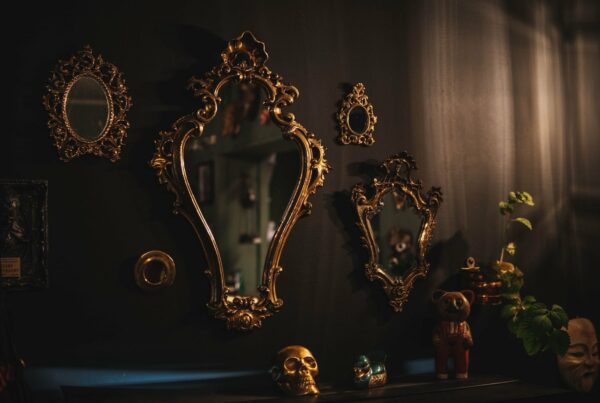Last year when my community group read through John’s account of Jesus raising Lazarus, I saw the story with fresh eyes. The striking aspect of the story, which I had never noticed before, was that Lazarus came out of the grave completely alive, but still wearing his stinky grave clothes. Jesus resurrected Lazarus, but then commanded his community to “go and unbind him.”
My epiphany at the time was that within our churches we will encounter new (or not so new) followers of Christ who are, like Lazarus, new creations in Christ, but still wrapped in varying degrees of binding grave clothes—deeply ingrained habits or patterns of thought that hinder their walk with Christ. Moreover, just as he commanded Lazarus’s community, Jesus instructs the church to lovingly remove from one another any residual grave coverings that hobble us. We are designed to join together in community in the process of sanctification.
It’s a lovely vision, but it can’t stop there. You see, inherent in Christ’s command to go and unbind Lazarus is the expectation that the grave clothes must come off. We should recognize that all believers are alive in Christ—even if they don’t look that way. However, Jesus’ mandate to unbind makes it clear that while we love and accept one another, we are not to leave each other bound in spiritually stinky habits or thought patterns.
As I actually began wrestling through the deeper application of what it would look like to be a people who “unbind” one another, I found myself feeling decidedly uncomfortable. My discomfort was on many levels, but the thought that really had me squirming was the notion that removing another’s grave clothes requires pointing out his sin and trying to “help” him overcome it.
I initially experienced two difficulties in living out this type of community. The first hurdle is the reality that under the grave clothes is nakedness. Therefore, removing the wraps that bind means I am exposing a person.
Second, while Lazarus’s grave clothes were literal cloth wrappings, the “grave clothes” that give us a stench are spiritual. Consequently, the believer wearing them may be blind to them, or even see the grave clothes as part of his or her identity. Even if our motives are loving and our approach is full of grace, the enshrouded believer may resent us trying to remove them.
So how do we live this out?
My “a-ha” moment happened one Sunday when Pastor Clint Harrison was telling about a friend of Jeanne’s who actually asked those close to her to speak up anytime they saw a sin or idolatry to which she was blind. She must have loved Christ so much that she gave others permission to expose her. She knew the resulting “nakedness” would free her to put on the covering and character of Jesus without any underlying stench. I also suspect that Christ’s love for her had given her such a love of others that she would rather be exposed than cause anyone else to stumble. I think we all need that kind of love and humility.
Clint’s story made me realize that when Christ commands us to “go and unbind” others, it is not necessarily a command to point out sin and try to change the behavior of another, but rather a command to help one another—in community—to find the freedom that shedding our destructive habits will bring. It requires a community in which every member is safe, both emotionally and spiritually.
The actions of Jeanne’s friend made me see the starting point for creating a community that is safe even for those who may be uncomfortable with unbinding: I must first be willing to be exposed myself. Rather than jumping in like a morally superior guide to unbind another, what if I first give others permission to unbind me? After all, because of our sin nature, we are all draped in bits and pieces of rotting grave clothes.
This culture of mutual vulnerability reinforces the Gospel message that we are all sinners in the hands of a redemptive God. As we live in humble vulnerability with one another, we create a climate in which spiritual nakedness is not shameful, but healing. In the process, we create communities that give every member the safety and freedom to follow on the pathway of transformation.





I appreciate the revelation that helps other to become naked and transparent in our relationship with our brother and sister in the Lord and unsaved people. This is truly an eye opener. I dreamed my sister dressed me I have clothes. That evening had a conference call me, I had become somewhat judgemental of a brother in the Lord, and Lord dwelt with me while on call regard the matter. Thank you so much for clarity .